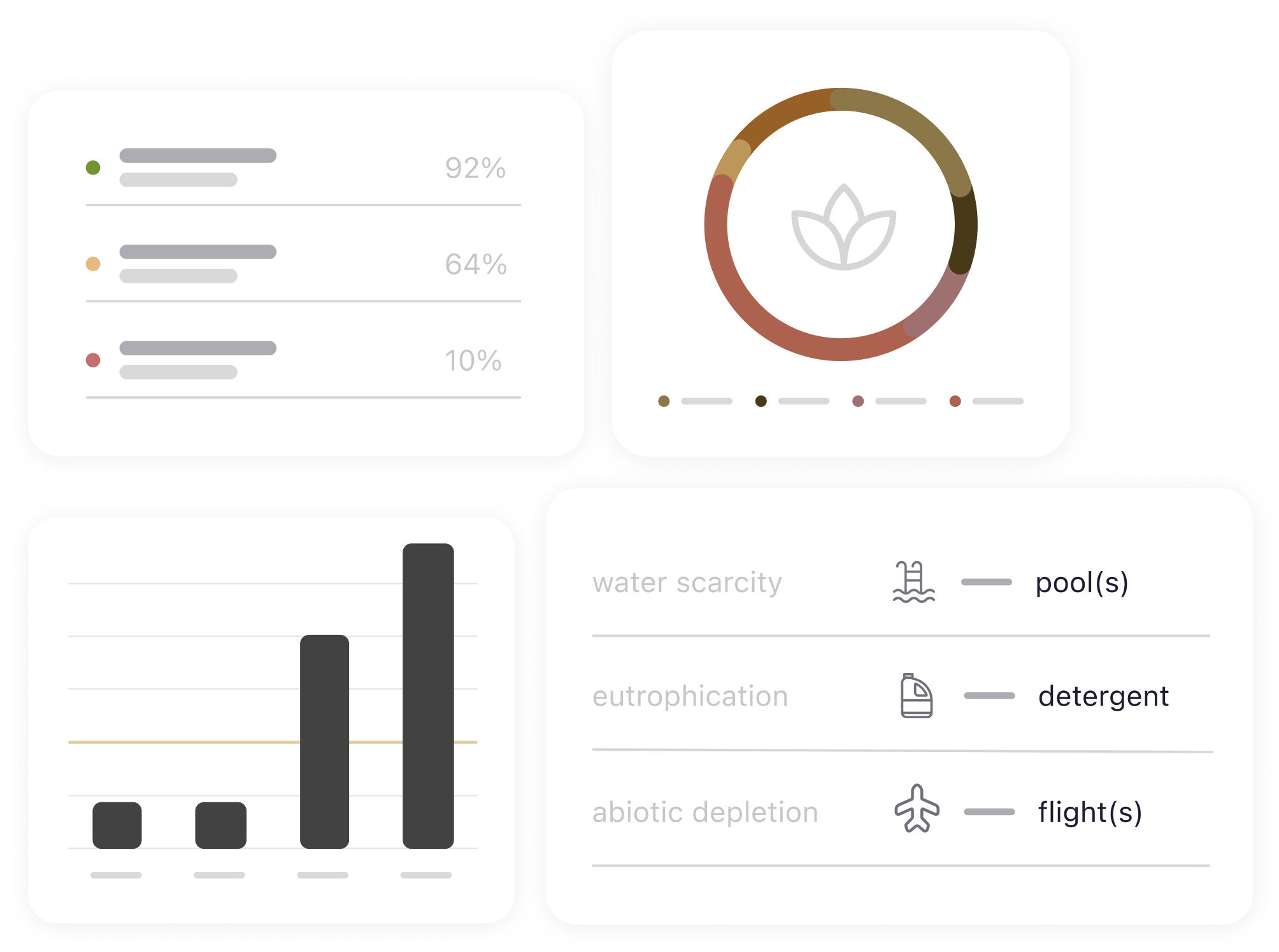One more year, fashion has been present at the United Nations Climate Change Conference. During its 27th edition held in Egypt, the textile sector has once again gained relevance due to the urgent need to include the huge impact of the fashion industry in the climate conversation. We review the key takeaways drawn during The COP27 Fashion Charter, an event that analyzes the evolution of the sector on its journey to reaching net zero emissions.
The textile sector has once again gained relevance due to the urgent need to include the huge impact of the fashion industry in the climate conversation
The Fashion Industry Charter for Climate Action is an initiative led by the industry whose origins date back to 2018, when around 30 companies, from the H&M group, to Inditex, Adidas or Nike, signed this charter at the COP24 in Poland. This project is guided by its mission to “promote the fashion industry to reach net zero greenhouse gas emissions before 2050, in line with keeping global warming below 1.5º”. To fulfill this mission, the signatory companies joined a set of goals that included halving emissions by 2030, using low-carbon materials with circular features, scaling up renewable energy throughout its supply chain, the elimination of the use of fossil fuels, as well as the defense of net zero emission policies.
We delve into the COP27 Fashion Charter event to explore whether the net zero transformation is really underway, what practical solutions are being applied by key industry organizations, as well as what are the requirements to achieve the goals set out throughout their value chains.
Is the fashion industry taking up the task of decarbonizing?
After listening to the panelists of this round table, the answer is clear: great efforts are being made to reach the objectives set, but it is very likely that they are insufficient. “We are not big enough to change all the supply chain, so that’s why we think that collaboration is key”, says Marie-Claire Daveu, Chief Sustainability and Institutional Affairs Officer at Kering Group. The global involvement of the entire industry in reducing its emissions is considered essential to achieve the goals set.
“Achieve a 50% reduction by 2030, it’s a really tough goal […] You commit to get to a target but you don’t know how to get there. This is the problem combating Climate Change. If we are stuck here or stuck there, it’s not because of regulations or because of financial incentives, if we don’t start to work on it and begin to address the problems, we won’t get there basically”. The words of Delman Lee, Vice Chair, at TAL Apparel, one of the largest manufacturing companies in the world, call for action by the industry.
However, the sector’s difficulties in addressing emissions from the entire supply chain are being an obstacle in meeting these targets. “80% of our emissions are coming from scope 3” says Taciana Breu, Head of Sustainability at Grupo Soma. “How can we modernize and model the systems that we need to attack all of our challenges?”.
Professionals claim the evolution of regulations to ease the achievement of their targets. They are aware of the need to reformulate the entire business model and denounce the problems of scalability and financing of new systems that allow progress on this path.
Is the fashion eco-system ramping up to support transparency and sector decarbonization?
“Without transparent information in supply chains, we don’t actually know what we are dealing with”. The moderator of the second round table of the day, Lilly Cole, Environmental Activist and advisor to UNECE, was clear about the great ignorance that exists in the fashion industry about impact data that allows having the key knowledge to tackle the goals set. “We don’t know if we are meeting those goals if we’re not having transparent information”.
Amina Razvi, Executive Director at Sustainable Apparel Coalition highlighted the evolution of the industry in the use of impact measurement tools. In the last ten years, systems such as the Higg Index have gone from being used by 15 companies to more than 300. A fact that demonstrates the interest of the textile sector in having greater knowledge of its impact. Still, Razvi indicates the need “to use the data to actually drive performance improvement”.
The President and CEO of the Global Fashion Agenda, Federica Marchionni, joined this speech pointing out that “we’re far from where we should be […] Taking actions must be scaled and must be accelerated”. A collective action that not only includes brands and suppliers, but also governments, final consumers and the media that act as loudspeakers to generate greater awareness both inside and outside the business sector is considered essential.
As a representative of exports from China, Kehua Hu, Sustainability Stewardship director at China National Apparel Council, highlighted the urgency of the Chinese government to become carbon neutral. He considers that for the country it’s no longer an option, but rather an obligation for which they need to have a complete picture of the industry’s emissions.
“We have to scale up or accelerate what we are already doing”, claimed Syeda Faiza Jamil, Programme Director, Net Zero Pakistan, who affirms that the floods suffered this year in the country belong to levels of precipitation foreseen for 20 or 40 years from now. Her speech invites us to “moving from planning to radical action in the ground” to mitigate the future effects of climate change.
“We need data to measure progress, we need data to ensure we are meeting our commitments […] We know enough to act now, we have enough information to know what solutions need to scale”
The intervention of Claire Bergkamp, COO of Textile Exchange highlighted the need to scale the solutions already available to the fashion industry. “We need data to measure progress, we need data to ensure we are meeting our commitments […] We know enough to act now, we have enough information to know what solutions need to scale”. To reach 1.5º or even lower levels, Bergkamp also encourages reflection on the concept of “growth” in the textile sector. Curbing the volume of garments made from virgin materials or promoting circular initiatives that favor the durability of articles were some of their proposals to rethink what it means to “grow” in the fashion industry.
The COP27 Fashion Charter also had one of the most media interventions in recent weeks. The climate activist, Sophia Kianni, established a clear link between the fossil fuel industry and the fashion industry, providing some data that added concern among the attendees. “The fast fashion industry has become part of the fossil fuel industry because we’re literally wearing oil […] As of now, TikTok videos hashtagged with #SheinHaul have over 6.8 billion views. You know what that means, the young people are very much complicit in fueling the exploitation of labor and the destruction of the environment. But it also means that we are the ones who can stop it”.
Once again, the fashion industry shows that it’s arriving late to meet the targets set for 2030. The last United Nations Climate Change Conference leaves us with a bittersweet taste that, however, we must counteract by taking note of the most repeated reflections during this edition:
- It’s essential to measure to be able to assess where we are as a business and address the impact goals set.
- Collaboration between all agents in the textile industry is essential to achieve scalability of existing resources and tools.
- Inactivity won’t get us anywhere, it’s necessary to “walk the talk” to progress in the transformation of the industry.
At BCome we’re committed to measurement, collaboration between all the players in the textile sector and information as a business tool to make better decisions that lead us to a paradigm shift. We want to be the partner that helps your company boost its sustainability performance through data and knowledge. We are here to offer you the foundations you need to transform your business. Do you want to know how we can help you? Let us show you!









